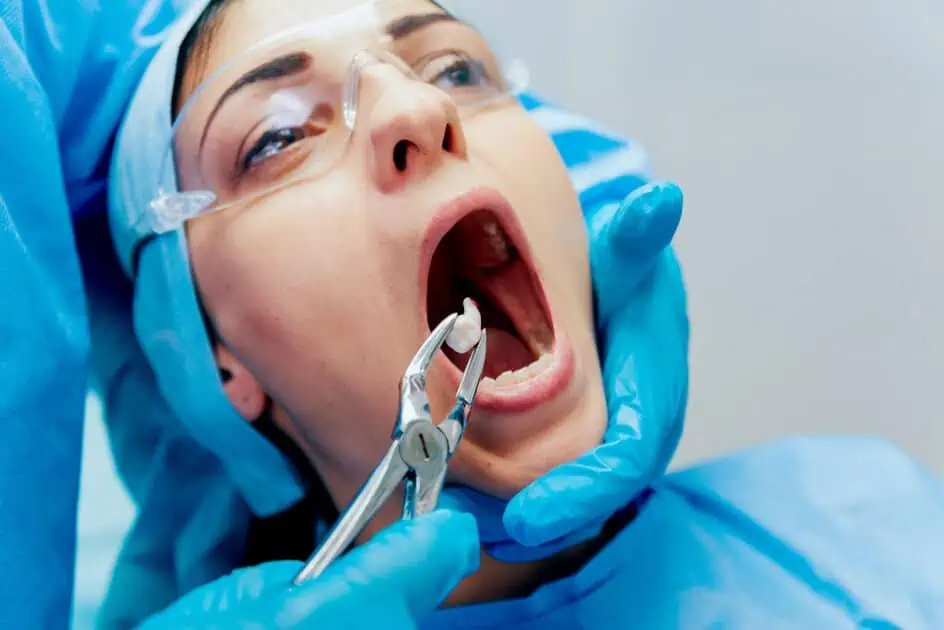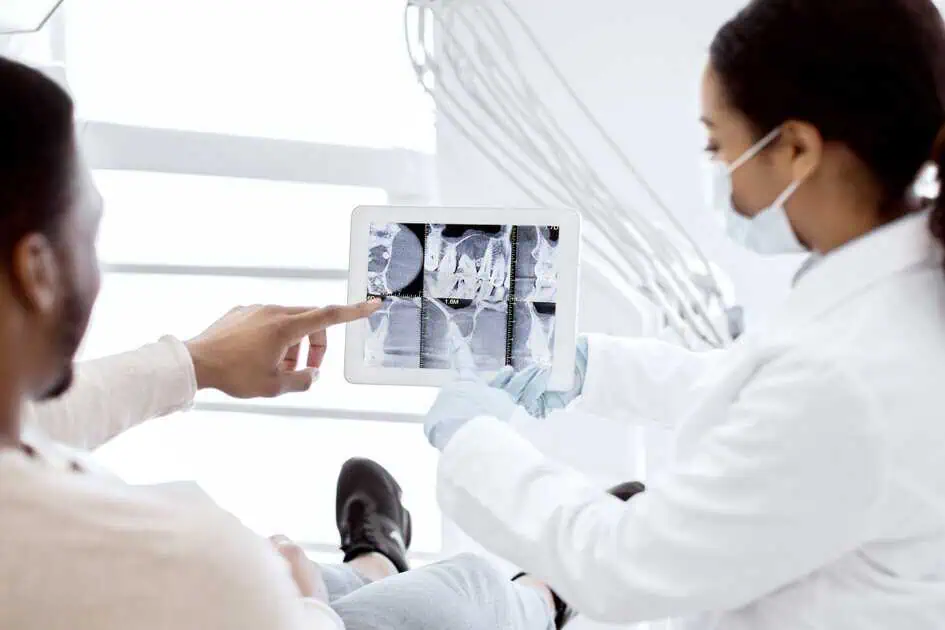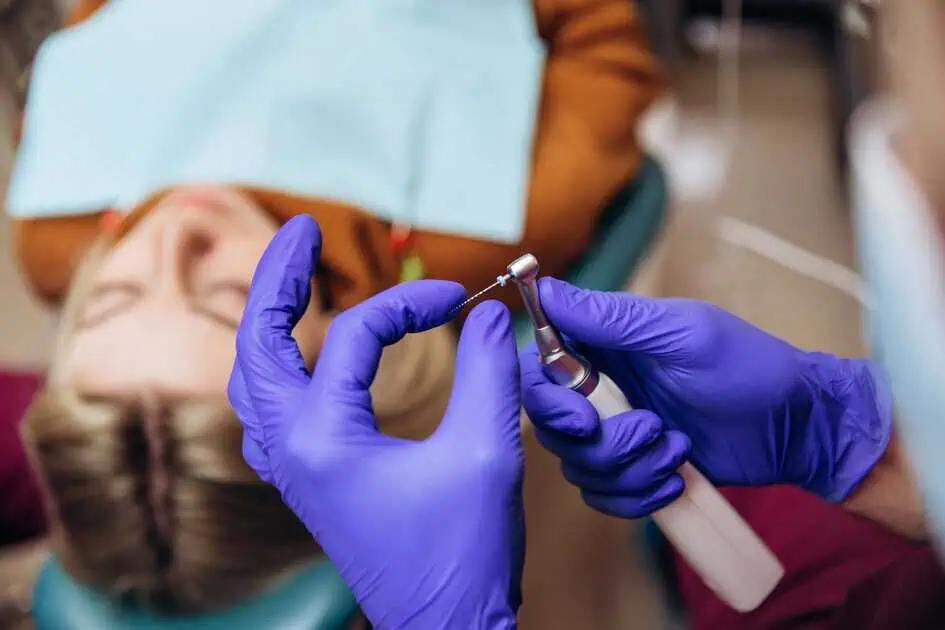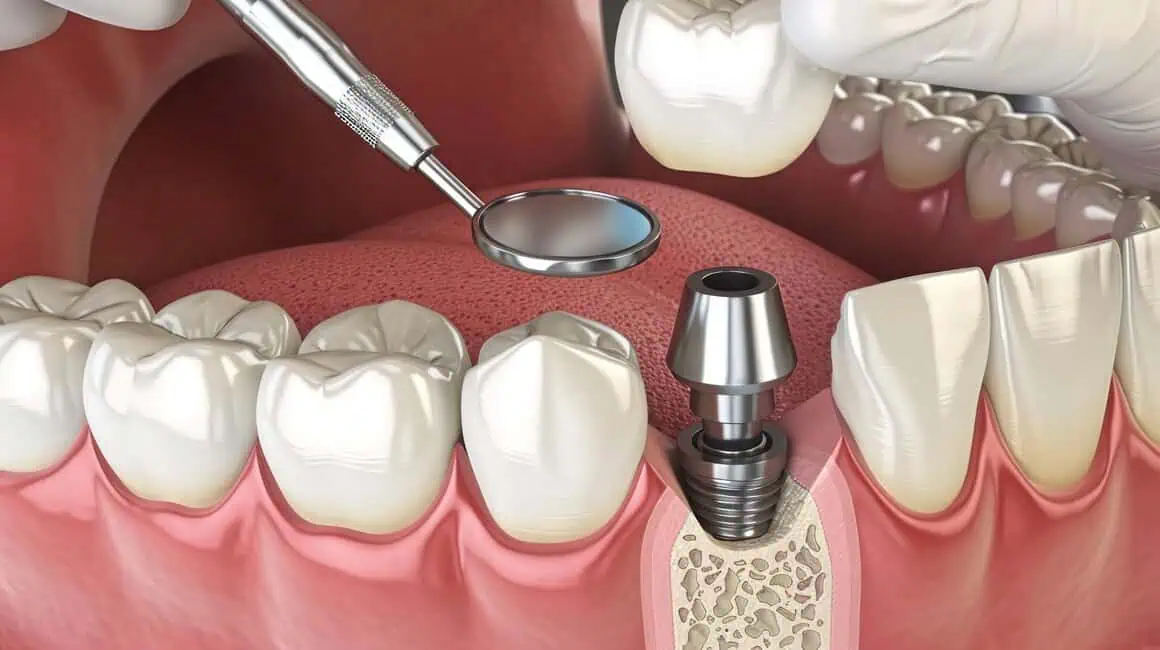Following oral surgery, recovery can seem like a confusing process. What does a normal recovery look like? How much time will it take? If these questions are swirling in your mind, you’re not alone. Oral surgery, a key aspect of dental care, ranges from tooth extractions to more complex procedures like implant placements. Even though the idea of surgery can be frightening, being aware of the recovery process can reduce anxiety. Although each treatment and person’s healing process is unique, having some knowledge of the basics should help you have a better understanding of your own recovery process.
What is Oral Surgery?
Although it may sound scary, oral surgery is a common procedure in dentistry that treats a variety of conditions involving the mouth and its surrounding tissues. Oral surgery involves a variety of surgeries, such as bone grafting and dental implants, and is not limited to tooth extractions. Each procedure has a unique purpose, such as reducing discomfort, avoiding infection, or fixing damage from an accident.
Modern dental technology has made these procedures safer and more comfortable than they have ever been. For many dental issues, oral surgery is a well-tolerated therapy when performed by qualified specialists using contemporary methods. Oral surgery is a flexible tool for maintaining oral health, whether for crown repair or dental implant placement.
Determining Candidacy for Oral Surgery
Your dentist will thoroughly evaluate you to determine whether you are a good candidate. The procedure begins with a thorough oral examination. Your dentist examines you and determines if you require surgery based on the present state of your dental health. But it’s not just about what’s happening in your mouth. Your medical history plays a significant role too. This is because certain health conditions can impact how well you heal or respond to surgery.
Your dentist will spend time getting to know your problems and symptoms. This discussion aids in creating a personalized treatment plan for you. For instance, a tooth with a small crack may only need a root canal, while more extensive damage may call for an implant. The key here is personalized care. Each case is unique, so the decision to proceed with oral surgery is made individually, considering your specific needs and health history.
Recovery Process Post-Oral Surgery
The length of recovery following oral surgery varies based on the procedure you underwent. For the first 24 to 48 hours, it’s typical to feel some pain, swelling, and discomfort. You can better manage these symptoms by following the directions your dentist gives you. You must adhere to these rules strictly.
Taking prescription drugs as indicated is part of the healing process, particularly if they are used to treat pain or prevent infection. It’s also critical to abstain from some behaviors that can impede healing, such as alcohol and tobacco use.
Your mouth may feel sore in the early days after surgery. You may be instructed to rinse with warm saltwater to promote healing and lower the chance of infection. You’ll also need to make dietary adjustments. Soft foods, such as soup, applesauce, and yogurt, are recommended to avoid putting strain on the surgery site.
Remember, these are general guidelines. In light of your unique surgical and medical requirements, your dentist will provide you with personalized guidance. Following these instructions can make a difference in whether you get a smooth recovery or experience some complications.
Factors Influencing Recovery Time
Several factors can influence how long it takes to recover from oral surgery:
- Type of Surgery: Different procedures have varying recovery timelines. A simple extraction may heal faster than a complex bone grafting.
- Individual Health Conditions: Your overall health, including conditions like diabetes or immune system disorders, can affect healing.
- Age: Younger patients often recover faster due to their higher regenerative capabilities.
- Lifestyle Habits: Smoking and alcohol consumption can slow down the healing process.
- Post-Operative Care: Following your dentist’s instructions, such as taking prescribed medication and proper oral hygiene, plays a crucial role in recovery.
- Nutrition and Hydration: A healthy diet and staying hydrated can aid in faster healing.
- Physical Activity: Excessive physical activity soon after surgery might prolong recovery. It’s advised to rest and avoid strenuous activities.
Complications and When to Seek Help
Even though oral surgery is usually safe, there could be issues that need to be considered. It is time to get assistance if you observe any of these symptoms:
- Excessive Bleeding: Some bleeding is normal, but if it’s heavy and doesn’t stop, contact your dentist.
- Severe Pain: Some discomfort is expected, but intense, unmanageable pain may indicate a problem.
- Signs of Infection: This includes fever, severe swelling, discharge, or a foul taste.
- Difficulty Breathing or Swallowing: These can be serious symptoms requiring immediate medical attention.
Always keep in mind that being careful is preferable. Do not be reluctant to contact your dental care provider if you have any questions or concerns regarding your symptoms.
Signs of Successful Recovery
Recognizing signs of successful recovery after oral surgery is key to ensuring everything is on track. The progressive reduction of pain and swelling in the postoperative days is a positive indicator. Additionally, you should see that the surgical site is beginning to heal without much redness or drainage, suggesting an infection. You’ll gradually regain more normal function and have less pain when speaking or eating. Additionally, you must maintain proper oral hygiene without making the surgical site hurt or bleed. Remember, a smooth and steady improvement indicates that your recovery is progressing well.
Takeaway
Contact Solomon Family Dentistry if you are thinking about having oral surgery or have any other questions regarding the state of your teeth. They can give you the attention and assistance you want because of their highly qualified staff and extensive services of oral surgery procedures. Solomon Family Dentistry is prepared to help you on your path to improved dental health, whether you’re in for a consultation or to talk about your options for treatment. Book an appointment with them right now to get started on the path to a happier, healthier smile.





